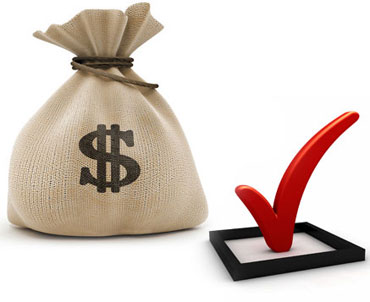Itâs the Ride of Your Life, and More.
Ever known anyone who has sold their company, cashed it all in, got their big payday?
Ever noticed the look on their face when they tell you the story of how it happened?
As listeners, weâre prepared to be impressed. This is a milestone event and we all love success stories, especially when the good guy prevails.
As we eagerly await the story to begin we anticipate the size of the numbers weâre going to hear about, and the thrill of all the machinations in the deal.
As vicarious listeners, we are completely willing to admire their accomplishments.
We want to feel what it is like to be in their shoes. âImagine, being able to sell your own business, just like that!â
The Business Owner Who Sells is a Hero
When we meet someone who has done something we want to achieve but are not sure we will ever get there ourselves, we tend to put that person up on a pedestal.
That pedestal represents the dream the rest of us are still chasing.
Iâve listened to many owners, freshly facing their change in fortunes, tell us their story of how they arrived.
This is the common story I hear and what I notice as they tell it.
The first emotion that crosses the newly wealth face when asked what its like to close the biggest deal of their lives, is sometimes pride. Pride in the same way you might feel had you just just finished a marathon.
But more often I sense hesitancy. Is it hesitancy to climb on to that pedestal?
Or is it that they just donât want to brag about what theyâve achieved?
Letâs listen in.
Joe looks embarrassed. âWell it could have been anyone. To tell you the truth, I almost didnât think this deal would close. The closing date was pushed forward so many times.â He shakes his head and settles his gaze on the window.
Martin, his partner, looks over his shoulder and scans the room automatically. We are not in his office. We are alone. The door is closed. We could barely here his voice. âWell the employees donât know yet. I mean some of them do because we had to tell them something was in the works so theyâd stay.â
Alex, their third partner, crosses his arms over his chest and sighs. âStill canât quite believe it myself. Letâs see what the numbers tell us in a year. Then Iâll know whether this was the right decision or not.â His nervous laugh echoes in the stillness of this room.
Strangely, after these cautious comments, each man is silent for a few beats longer than most people would call comfortable. During that time, I see a whole range of emotions race across their faces.
The last emotion that settles on their faces before they remember they have visitors and settle a smile on their lips, is pain.
Flashbacks
Iâll call this pain the Flashback Syndrome.
My questions have stirred memories theyâd rather not reflect on. They are reliving what they just went through. Like someone with a mild form of Post Traumatic Stress Disorder.
If youâve noticed similar reactions in people you know whoâve sold their business, you are witnessing the Flashback Syndrome in action. They are remembering one of the most arduous events of their lives.
They donât feel like heros. They donât want to be put on a pedestal.
Theyâve just lived through a drawn out, nail-biting, roller coaster ride where uncertainty controlled every moment of the day.
What you donât hear from owners who have sold like Joe, Alex and Martin is that every move of their last five years was scrutinized, picked over and judged.
They never knew from day to day whether the buyer would walk, having just found some peculiarity that said to them âtoo much risk, no deal.â
You are watching them react to the collision of interests that constantly assailed them through the due diligence process: their value system they live by that says âspeak the truth and be an honest dealerâ is at odds with the expectations of doing a deal. To buyers, they had to justify every move. For their employees they had to walk around facing them every day like nothing was going on.
Meanwhile, closed doors and whispering in the hallway, plus the bossâ tight jaw and rare smile spoke volumes to employees.
Their integrity was challenged. Self-doubt nibbled away at their innocence.
To compound the situation, the owners undergoing this scrutiny have to keep a tight grip on everything that anyone does during due diligence, lest the numbers forecast are not the results delivered during this vetting period. This need for self-control saps their goodwill towards everyone, their stamina and their nervous system.
And it gets worse. At home and with friends, they have to pretend that all is fine, to protect the people they love from the stress of the highs and lows⌠to manage expectations and prevent disappointment.
You see, that business owner who just sold can tell, by looking at the anticipation on your face, that donât want to hear real version of their story.
Hence their hesitation⌠when you ask how it happened. Followed by an opaque summary delivered with a half smile: âYeah, well we got the deal done. Yeah, Iâm out. Actually, Iâve got a couple of more years to go. Then Iâm out. If all goes as planned.â
And youâre thinking, âWait a minute. You just became a millionaire over night and youâre not even high-fiving me? What gives?â
Hereâs the truth about what gives. You probably wonât get the insiderâs view on what it really takes to sell a business unless you are very close to that owner. And even then, you wonât get a true taste of what he or she went through.
So what do they share with you? What you want to hear of course. The big numbers. Big Multiples. Closing dinners. Boardroom tales. Jargon.
You witness the new benefits they can now indulge in â big new purchases, lavish trips and a sudden preference for fine dining.
But you wonât get the real story. âYou canât handle the truth.â Thatâs what goes through the mind of a business owner in the days after they have finally closed the biggest deal of their lives.
Â
The Real Story
And unfortunately what you do hear may leave you with some myths that wonât serve you if you want to make it to your own finish line.
So what could Joe, Alex and Martin have done to reduce their Post Traumatic Stress Syndrome so they werenât living day to day in a soup of uncertainty?
1. Learn First, Then Build Your Saleability Plan It takes 2-4 years to become Saleable and Transferrable. During that time, smart owners engage advisors to look for the landmines that raise buyer red flags. And then they focus on fixing those red flags. Then the sail through due diligence without all the stress.
2. Come to Terms with Reality Early: Get prepared long before you ever call the business broker. When you make your company saleable, you deal with all the issues that prevent a buyer from saying yes, long before you put the business on the market. You are ready to let go emotionally and psychologically. Your company is primed for growth. Your business knowledge, management team and assets are in transferrable condition.
3. Become What Buyers Are Looking For: If your company is a perfect match to add the value that buyers need to realize their strategic goals, they will be much easier to negotiate with. Learn to see your company through their eyes. Add the Green Lights they search the world for. Itâs hard to say no and dither over trivial issues when what you want is staring you in the face.
Whatâs your experience talking to an owner post sale? Ask them what they wish they had done differently going into the deal. Their advice may be the best wake up call you ever got if selling your business is on your bucket list. Far more rewarding than their success story.
Share your stories and comments here so we can enrich everyone. Wishing you, your friends, and your clients a Saleable business.





